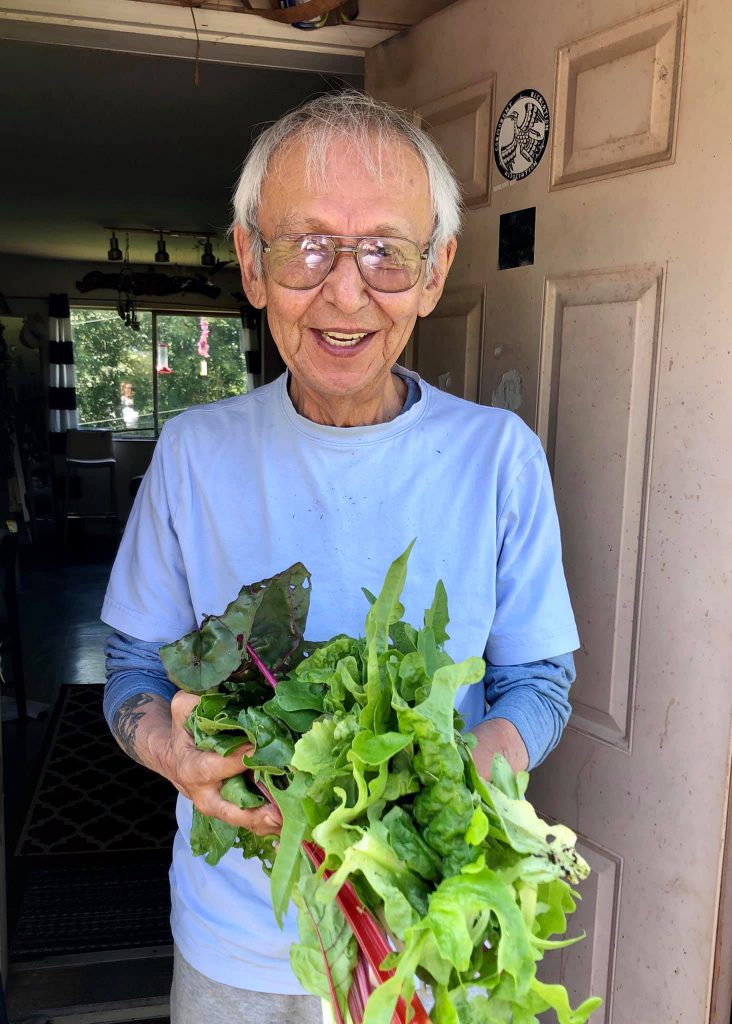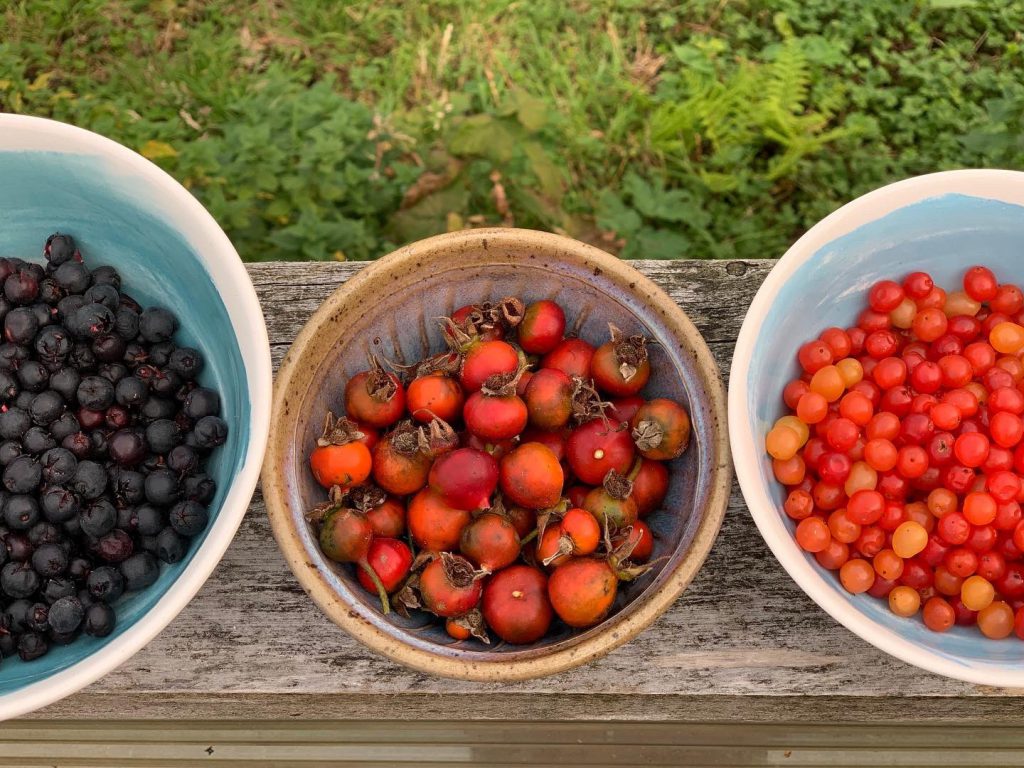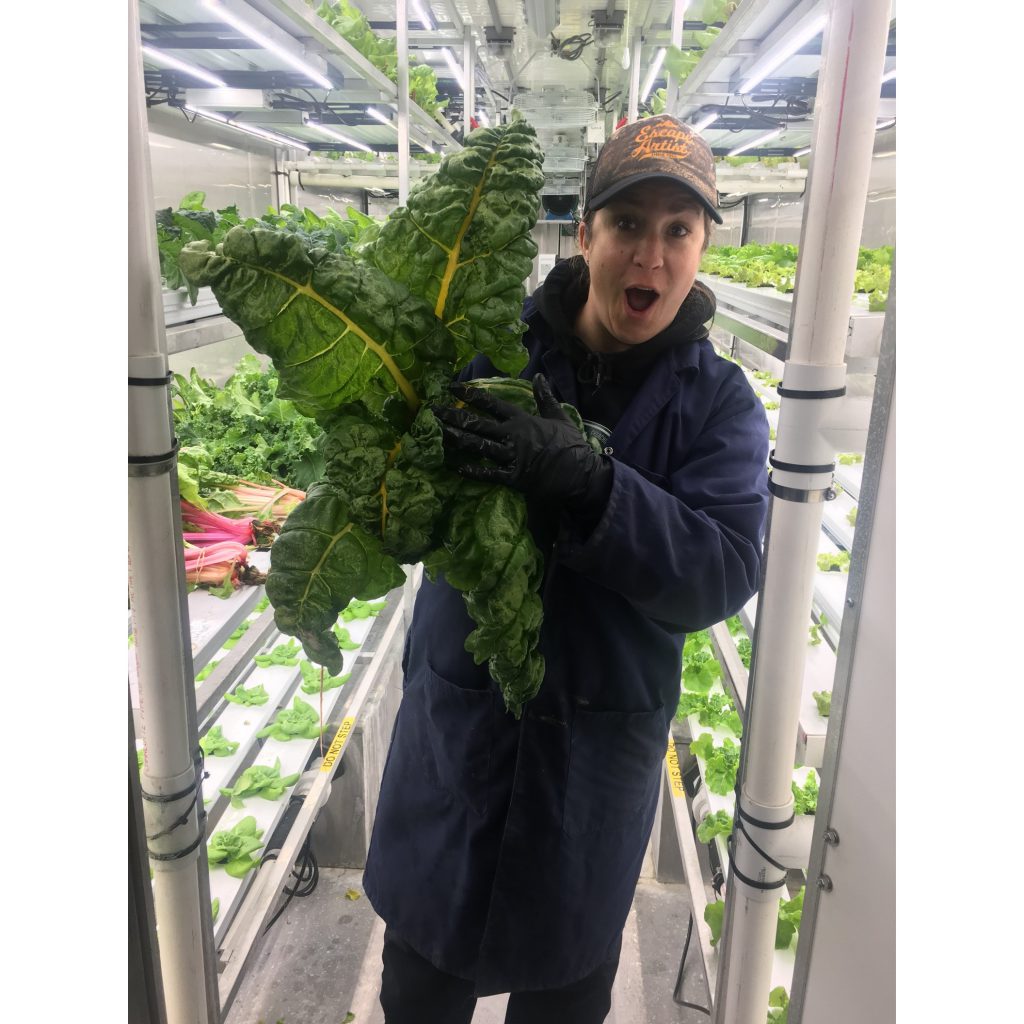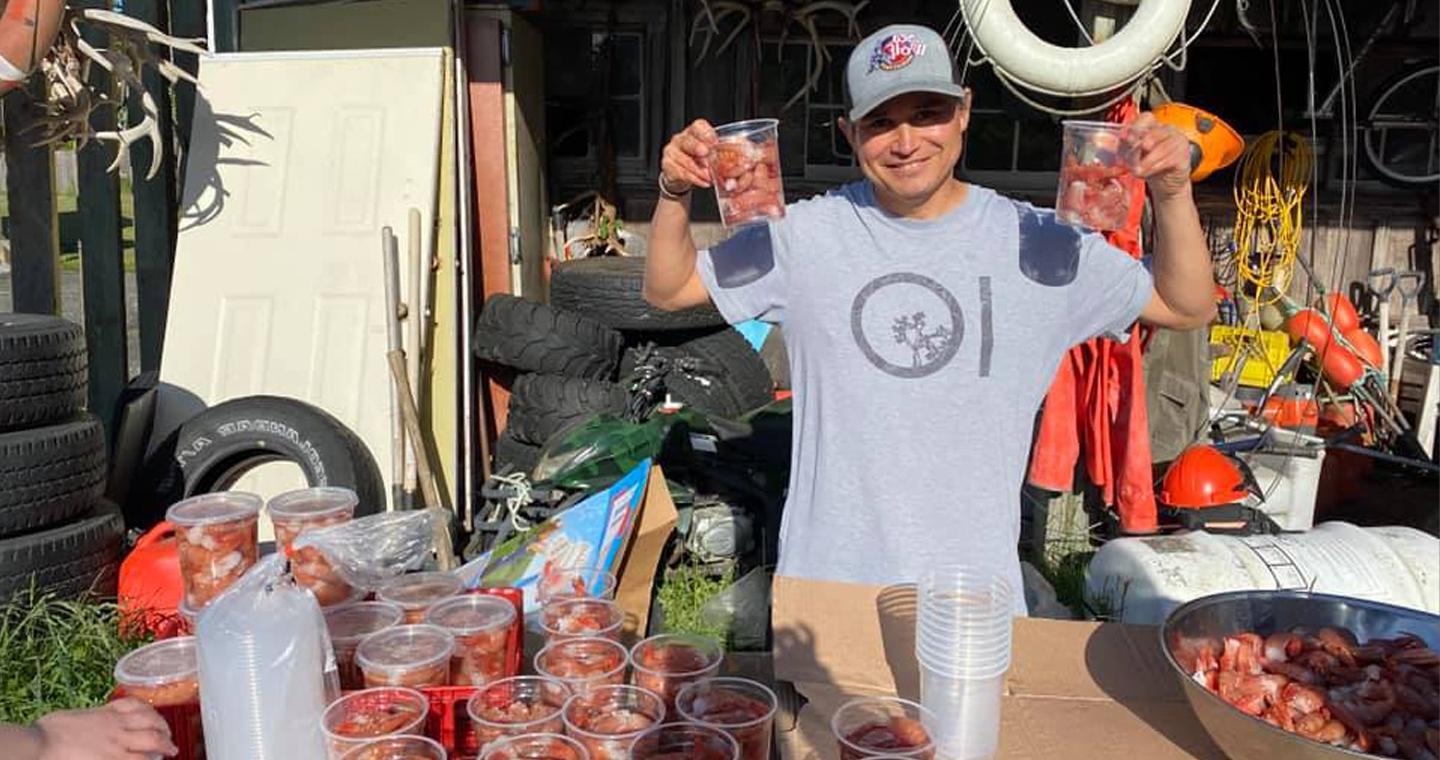Covid-19 presents unique and urgent challenges for remote communities across Canada, particularly remote Indigenous communities. Yet the resiliency and strength of local communities has enabled creative solutions and thoughtful responses to ensure community members’ health, food supply, and the well-being of their Elders —holders of culture, knowledge, and language.
When the pandemic broke out this spring, MakeWay staff asked our partners living in remote communities across Northern Ontario, Northern Manitoba, the Northern Territories and Nunavik, and remote parts of British Columbia: what do you need, and how can we help?
Communities in different regions identified unique and also some shared concerns about the vulnerability of supply lines and food security, the potential for rapid spread of Covid-19 due to large households, limited access to medical care, risks of increased social isolation that could disrupt culture and language revitalization efforts and connection to land and waters.
Community initiatives identified a need for flexible funding so they could move quickly and respond to rapidly changing scenarios. Communities know how to work together to stretch resources in creative and unique ways. Small, nimble grants can create high impact solutions locally. However, accessing such funding is often challenging as conventional funding, via governments and philanthropic funders, are unable to provide this type of funding. In addition, navigating the maze of funding processes can be a massive barrier for communities who barely have enough time and resources to attend to their own communities’ needs, especially in emergency situations.
After working to understand communities’ needs, MakeWay launched a rapid response fund for remote communities designed to quickly raise and deploy flexible grants to community-led responses to the threats of the pandemic.
We are excited to share some of the ways in which communities applied their grants, to highlight the awesome and important work that communities are doing to care for their members during Covid-19.
Thanks to contributions from aligned MakeWay advised funds and external partner funders, the fund quickly mobilized over $240,000 to remote community initiatives during the first few months of the pandemic. MakeWay staff in BC, Northern Manitoba, and the Northern Territories disbursed the funds to community partners based on identified needs.
Highlights – Remote Communities Rapid Response Grants
Pacific / British Columbia
The primary concern was to respond the immediate food insecurity challenges named by our remote Indigenous community partners. Building on 20 years of trust-based relationships in territories across BC, our team quickly activated existing relationships, raising funds for communities who would not have access to conventional food security funds. At the direction of our community partners, MakeWay provided responsive emergency grants to 63 Indigenous communities across five regions: North and Central Coast; South-Central Coast; Kitimat-Stikine and Bulkley-Nechako; Southern Vancouver Island Coast Salish, and; Nuu-chal-nuth Territories.

In the Northwest corner of BC, the Gitanyow Hereditary Chiefs Office initiated the Gitanyow Food Sovereignty Project. With the pandemic affecting the community and Wilp members, food security for the winter and the second wave was a big concern. Support was being provided to on-reserve members through the Gitanyow Band Council. However, there was a need to support those Gitanyow members who reside elsewhere. The Project provided hundreds of fresh fish, cases of jarred fish, Ts’el (half dry) sockeye, Hoox (dried fish strips) and Ts’ok (smoked fish bellies) from Wilp sa Huun’s Nox’m to families in Terrace, Prince George, the lower mainland, Alberta, and surrounding Gitksan villages where Gitanyow Wilp members reside.
In the heart of Kwikwasut’inuxw Haxwa’mis Territory, the Nawalakw Culture Project adapted to the pandemic by establishing a COVID-19 Relief Team. Communities identified food security and local employment as top priorities, and so the Nawalakw team built and installed more than 100 garden boxes for elders in the Alert Bay area to strengthen food security as food supply lines were compromised. The team used their $5,000 grant to plant or deliver over 316 blueberry bushes, and 36 apple trees to three remote First Nations communities. 12 local Indigenous Fishers were hired, including two young students, and Nawalakw delivered over 1000 pounds of both prawns and halibut to eight communities including the villages of Alert Bay, Gwayasdums, Hegams and U’kwanalis. Nawalakw has now begun a coordinated community planning process for long-term food security.

In Heiltsuk Territories on the central coast of BC, Qqs (Eyes) Project Society augmented their existing community gardens into Granny Gardens, their response to Victory Gardens, harnessing their 10+ years of food security work into a resilience movement for individuals and families in Bella Bella to grow and harvest their own food during these uncertain times. The initiative by Qqs includes dropping off soil and seeds at homes using safe-distance protocols, providing gardening instruction through social media, Heiltsuk Radio, and FaceTime. They are also in the process of building a temporary greenhouse and planting communal garden spaces to grow food plants for additional distribution.
Boreal Provincial North: Northern Manitoba, Northern Saskatchewan, and Northern Ontario

The Northern Manitoba Food, Culture, and Community Collaborative dispersed MakeWay’s response funding in the region. While the Collaborative operates mainly within the northern three quarters of Manitoba, colonial borders often do not represent community boundaries. So when Covid-19 hit, we connected with community partners in Northern Saskatchewan and Northern Ontario, in what is known as the Boreal Provincial North – forging new relationships in the midst of unprecedented uncertainty.
The community of LaRonge, Saskatchewan, used a grant of $11,300 to support youth-led land-based harvesting in the area. The investment empowers youth to build important skills connecting them to their land, their food, and to build strong local citizenship as they share the wild foods they harvest with Elders and with other community members.
In Manitoba, Churchill Rocket Greens received $5,000 to support the maintenance of a hydroponic unit at the Churchill Northern Study Centre. Covid-19 effectively paralyzed the local economy, much of which is supported by ecotourism, and international researchers living and working out of the Northern Study Centre. The Rocket Greens hydroponic project has produced thousands of pounds of greens, supporting the hospital, local restaurants, community members, and the cafeteria at the study centre, in a town that would otherwise have to ship fresh produce in from thousands of miles away.
In Northern Ontario, the Indigenous Foods Circle received $10,000 to support their work with 14 First Nations Communities. Working on a range of responses from land-based harvest, bulk food purchase, and some greenhouse equipment to prepare the community for greater local food production in 2021.
In South Indian Lake/O-Pipon-Na-Piwin Cree Nation, the Ithinto Mechisowin Program received $10,000 to support families to undertake land-based harvesting and physical distancing, with a particular focus on the spring and fall goose hunts.
The North / Northern Territories and Nunavik

Funding was dispersed to community partners in the North to strengthen food security as supply lines were – and continue to be – threatened by the pandemic in part due to strict travel restrictions put in place. Response funding supported community traditional food harvests, strengthening food sovereignty and bolstering their communities’ food stores in the midst of Covid-19. Grants also went to support on the land programming and cultural programming for community strength and well-being.
In Igloolik, Nunavut, the Hamlet received $15,000 for their community’s food sovereignty efforts and harvesting activities. Igloolik is a permanent settlement between the Canadian mainland and Baffin Island. This area is a rich and pristine ecosystem abundant with walruses, whales, polar bears, caribou, seals, fish and various bird species. Naturally, the community turned to hunters to address the unrest and challenges with food security. Skillful and respected hunters were paired with youth to harvest walrus and char and distribute their catch to the community.
In Whale Cove, Nunavut, the Hamlet made the strategic decision to use a grant of $8000 to support harvesting, processing and distributing of local fish/wildlife. Whale Cove was one of the four Nunavut communities to be impacted by active cases of Covid-19. Inuit leadership was made aware of the Rapid Response Fund and the community was most interested in an opportunity to support a harvest.
Cover image: Nawalakw Program Director K’odi Nelson helps distribute hundreds of pounds of prawns to community members of Alert Bay. With food supply lines compromised due to the pandemic, communities identified access to traditional foods as a priority. Nawalakw hired 12 local fishers and delivered the catch of over 1000 pounds of prawns and 1000 pounds of halibut to 8 Indigenous communities including Alert Bay, Gwasyadums, Hegams, and U’kwanalis. Photo courtesy of Alisha Souch.
